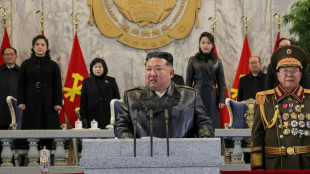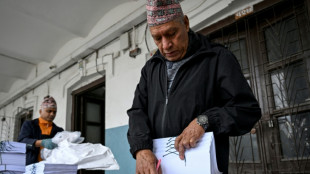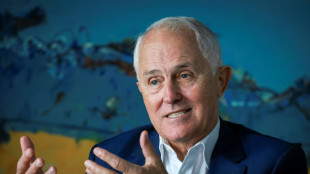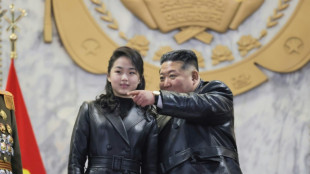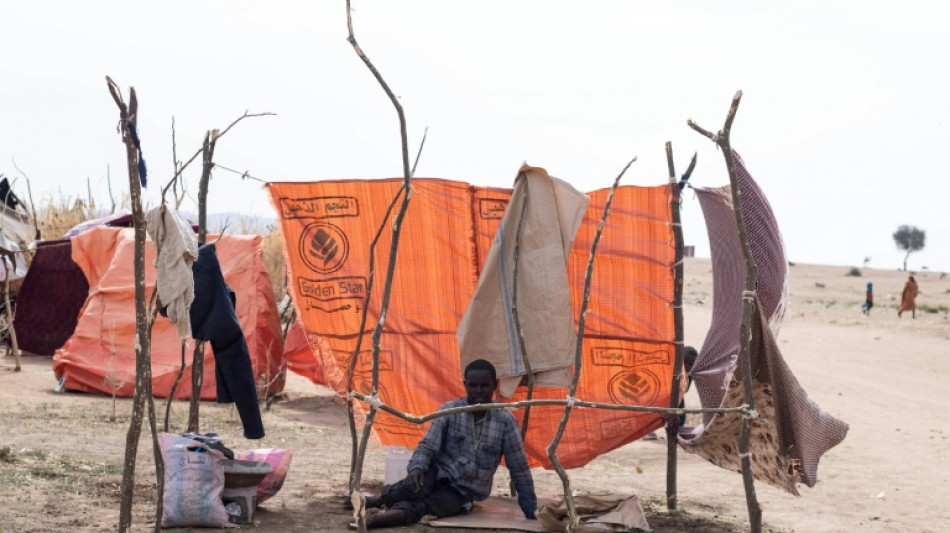
UN warns 'intensified hostilities' ahead in Sudan despite RSF backing truce plan

The United Nations warned on Friday of "intensified hostilities" ahead in Sudan, despite paramilitary forces endorsing a truce proposal from mediators after more than two years of war with the regular army.
"There is no sign of de-escalation," UN human rights chief Volker Turk said in a statement.
"Developments on the ground indicate clear preparations for intensified hostilities, with everything that implies for its long-suffering people."
On Thursday, the paramilitary Rapid Support Forces (RSF) said they had accepted a truce plan put forward by the United States, Saudi Arabia, the United Arab Emirates and Egypt.
However, the government, backed by the army, has yet to respond to the US-led mediators' proposal, and explosions rocked the army-controlled capital Khartoum on Friday.
The war in Sudan erupted in April 2023, pitting army chief Abdel Fattah al-Burhan against his former deputy, RSF commander Mohammed Hamdan Daglo.
It has so far killed tens of thousands of people, displaced nearly 12 million and triggered a hunger crisis.
Less than two weeks ago, the RSF captured the city of El-Fasher, the army's last major stronghold in Darfur, giving it control of all five state capitals in the vast western region, in addition to parts of the south.
The army controls most of Sudan's north, east and centre.
El-Fasher's fall was accompanied by reports of mass killings, sexual violence and looting, drawing international condemnation.
Yale University's Humanitarian Research Lab said on Thursday that satellite imagery collected earlier this week showed the RSF had blocked a key escape route used by civilians fleeing El-Fasher -- one of the city's five main exits.
There are fears of further atrocities taking place as the conflict shifts into the oil-rich Kordofan region.
- 'Stark warning' -
Turk issued a "stark warning" on Friday about escalating violence in Kordofan -- a vast semi-arid area between Darfur and army-held Khartoum.
"Since the capture of El-Fasher, the civilian casualties, destruction and mass displacement there have been mounting," Turk said.
In South Kordofan, a medical source told AFP on Friday that the RSF shelled a hospital in besieged Dilling the day before, killing five and injuring five more.
The Sudan Doctors' Union said the attack also destroyed the facility's radiology department.
Dilling, under RSF siege since June 2023, lies about 150 kilometres (90 miles) southwest of army-controlled El-Obeid, a key crossroads linking Darfur to Khartoum.
The army broke a two-year siege of El-Obeid in February, but the RSF has regrouped and is mounting a fresh push to seize Sudan's central corridor.
A resident of the city, the capital of North Kordofan state, said on condition of anonymity that people "are living in fear" and "ready to leave at any moment".
Last week, the RSF captured the town of Bara, north of El-Obeid.
Both RSF and army forces have surged across towns and villages in North Kordofan.
Much of the wider Kordofan region, meanwhile, faces a worsening humanitarian crisis.
The Rome-based Integrated Food Security Phase Classification (IPC) said Dilling is now at risk of famine, while South Kordofan's capital, Kadugli, is already facing one.
- Khartoum blasts -
On Friday, explosions were also heard in Khartoum and in Atbara, an army-held city around 300 kilometres north, witnesses told AFP.
Khartoum has experienced relative calm since the army regained control earlier this year, but the RSF have continued launching long-range drone attacks on military positions and infrastructure.
A resident in Omdurman, part of greater Khartoum, told AFP they were awoken "around 2:00 am (0000 GMT) by the sound of ... explosions" near a military base, while another reported hearing a drone overheard before a blast struck near a power station, causing an outage.
In Atbara, witnesses said anti-aircraft defences shot down several drones before dawn, sparking fire and explosions in the east of the city.
There were no immediate reports of casualties and neither the army nor the RSF commented on the blasts.
Despite the RSF's announcement on Thursday that it accepted mediators' plan for a ceasefire, analysts remain sceptical about the prospects for de-escalation.
Cameron Hudson of the Washington-based Center for Strategic and International Studies told AFP the RSF's announcement "aims to distract from the atrocities... in El-Fasher and portray itself as more responsible than the army".
No details of the ceasefire proposal have been made public, but a senior Saudi official told AFP that it calls for a "three-month truce", during which both sides would be encouraged to hold talks in Jeddah on a permanent peace deal.
The UAE, one of the mediators, has been accused by the UN of supplying arms to the RSF, allegations it has repeatedly denied.
The Sudanese army, meanwhile, has received support from fellow mediators Egypt and Saudi Arabia, as well as from Turkey and Iran, according to observers.
The RSF has set up a parallel administration in Nyala, South Darfur's capital, challenging the army-backed government based in the Red Sea city of Port Sudan.
A.Foglio--INP

 London
London

 Manchester
Manchester
 Glasgow
Glasgow
 Dublin
Dublin
 Belfast
Belfast
 Washington
Washington
 Denver
Denver
 Atlanta
Atlanta
 Dallas
Dallas
 Houston Texas
Houston Texas
 New Orleans
New Orleans
 El Paso
El Paso
 Phoenix
Phoenix
 Los Angeles
Los Angeles
